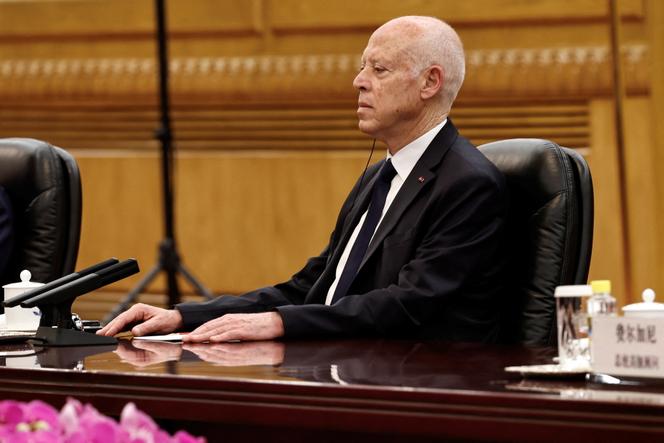


Act after act, Tunisia's president Kais Saied is trampling underfoot all the achievements of the democratic transition that followed the 2011 revolution. The latest symbol is the detention of Sihem Bensedrine, one of the country's leading figures in the fight for human rights, on Thursday, August 1.
At 73, Bensedrine has been caught up in the justice system for her role as president of the Truth & Dignity Commission (IVD), which she held from 2014 to 2018. This independent body had been created as part of the 2011 post-revolution transitional justice process to shed light on human rights violations under the regimes of Habib Bourguiba and Zine el-Abidine Ben Ali. The former head of the body is accused of "obtaining unjustified advantages," "causing prejudice to the State" and "falsification" for changes made to the IVD's final report, before its official publication. She faces life imprisonment.
A former journalist, figurehead of Tunisia's feminist movement in the late 1970s and human rights activist, Bensedrine had opposed Mr. Ben Ali's regime, which imprisoned her for several weeks in the early 2000s. Elected head of the IVD in 2014, she came in for much criticism during her tenure, both from political leaders hostile to the transitional justice process and for the management of her administration.
The IVD was tasked with cataloging human rights violations committed by state officials between 1955 and 2013, a period covering the presidencies of Habib Bourguiba (1957-1987) and his successor, Ben Ali (1987-2011), as well as the post-revolutionary unrest. During its eventful four-year mandate, the body received over sixty thousand complaints and interviewed almost fifty thousand alleged victims. Public hearings broadcast live on television were organized and around two hundred cases of serious human rights violations were referred to the courts, despite the lack of collaboration from several administrations, particularly the Interior Ministry.
The transitional justice process had also been severely weakened by then-president, Beji Caid Essebsi, and his ruling ally, the Islamo-conservative Ennahda party, notably with the adoption of the "administrative reconciliation" law, which aimed to reinstate officials implicated in acts of corruption in the civil service, in conflict with the IVD's prerogatives.
Under pressure from its critics, the body was ordered to complete its work in December 2018 and a voluminous report was then submitted to the Tunisian president before amendments were made to it in March 2019. The final version of the report was published in the Official Journal in 2020.
You have 54.18% of this article left to read. The rest is for subscribers only.
